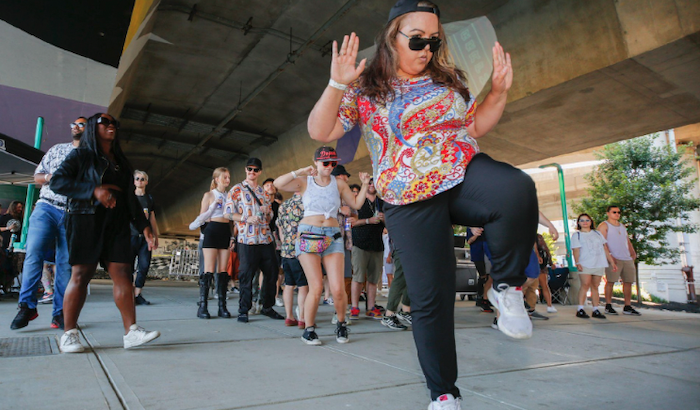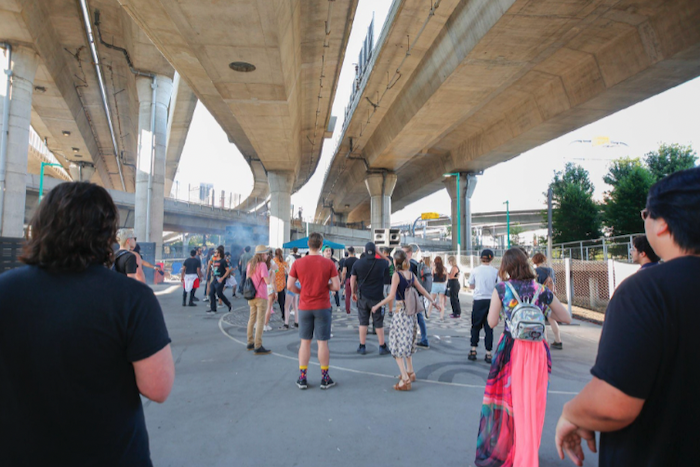
Infra, the music collective behind Boiler Room Boston
Jose Zamora has been planning underground electronic music events in Boston for more than four years. They range from weekly shows at secret locations to day-long outdoor raves.
But since February, Zamora and his collective Infra have been preparing for their most important party yet—a collaboration with renowned online music broadcasting platform Boiler Room.
“As an artist, producer, promoter, whatever you want to call me,” Zamora said. “This is one of the biggest accomplishments of my whole career.”
The two-day event will take place on Labor Day weekend at Big Night Live. With more than 20 international and local artists, it’s shaping up as one of the biggest electronic music events Boston has hosted in years.
Boston University musicology professor Michael Birenbaum Quintero said that there are two important ways to think about this surge in the popularity of underground scenes. The first is that the world needs spaces where people can make music that is different and original. The second is “to have an economic component behind it so that people can actually support each other,” he said.
Zamora’s goal in founding Infra was to promote the underground electronic music scene in Boston. With more than 2,000 tickets sold for Boiler Room, their mission is succeeding.
Infra’s creative director and DJ Victor Ribeiro said that the collective only sees itself as part of a greater community: “We’re just one team that’s executing that vision.”
Infra collaborates with other underground collectives in Boston through events like Infrastructure, their ongoing series of outdoor music events which began in 2021. The most recent one, Infrastructure 4, was in July, a collaboration with drum and bass collective Elements that drew more than 750 people.
“There may be two different stories to tell about live music in 2022,” said Andrew Mall, a popular music scholar and professor at Northeastern University. “One is that it has continued the boom of 2021 and there are lots of artists touring, the other is the story of inflation and how that’s hitting people’s disposable income.”

Like many electronic artists and collectives, Infra organized events with limited attendance and livestreamed them during the pandemic. The broadcasting format was in part popularized by Boiler Room, an organization with more than 3 million subscribers on YouTube that supports emerging and underground scenes by commissioning livestream sets and connecting with collectives like Infra to host local events.
Mall said that Boiler Room’s platform is accomplishing two objectives: support local music communities, like Infra, and make it financially sustainable on a larger scale.
While Infra’s focus is mainly techno of every variety, they would just call their sound “experimental,” Zamora said. Infra wants to do something that is different from commercial EDM, and to promote artists who are focused on new sounds.
For Zamora, it’s important to highlight alternative options.
“What we do with Infra is build the infrastructure for upcoming generations to be able to play that music,” he said.
“Just because you’re attempting to make a living doesn’t necessarily mean that you’re selling out the values of the underground,” Mall said. “It just means that you’re trying to make a living in this crazy world.”
“Underground artists understand that mainstream popularity comes and goes in waves,” Zamora said, “you just have to surf the right waves.”
The promoter added, “Right now it’s our time to shine, but maybe in five years [electronic music will] go back to being underground. But for us, it’ll still be relevant and we still have to be active because there will still be a demand for it.”
boilerroom.tv/city/boston
Anh Nguyen is a photographer and journalist from Vietnam currently based in Brooklyn, NY. She is passionate about people watching, playlist making, and plant-keeping.

